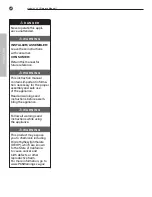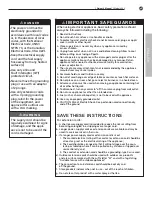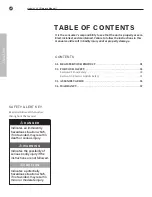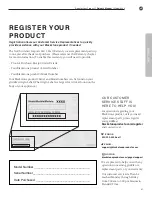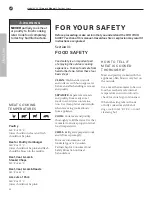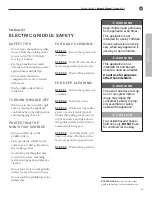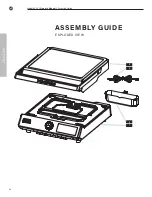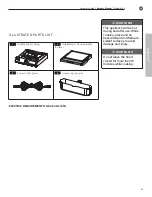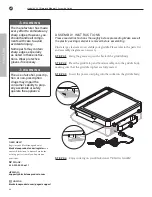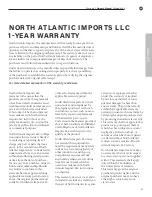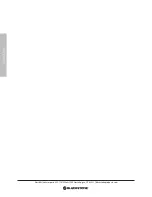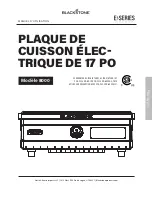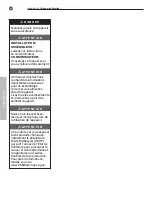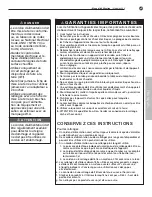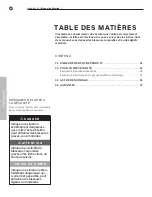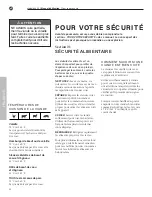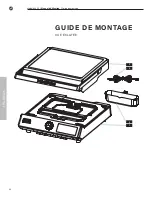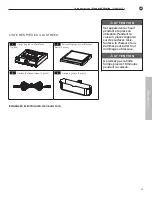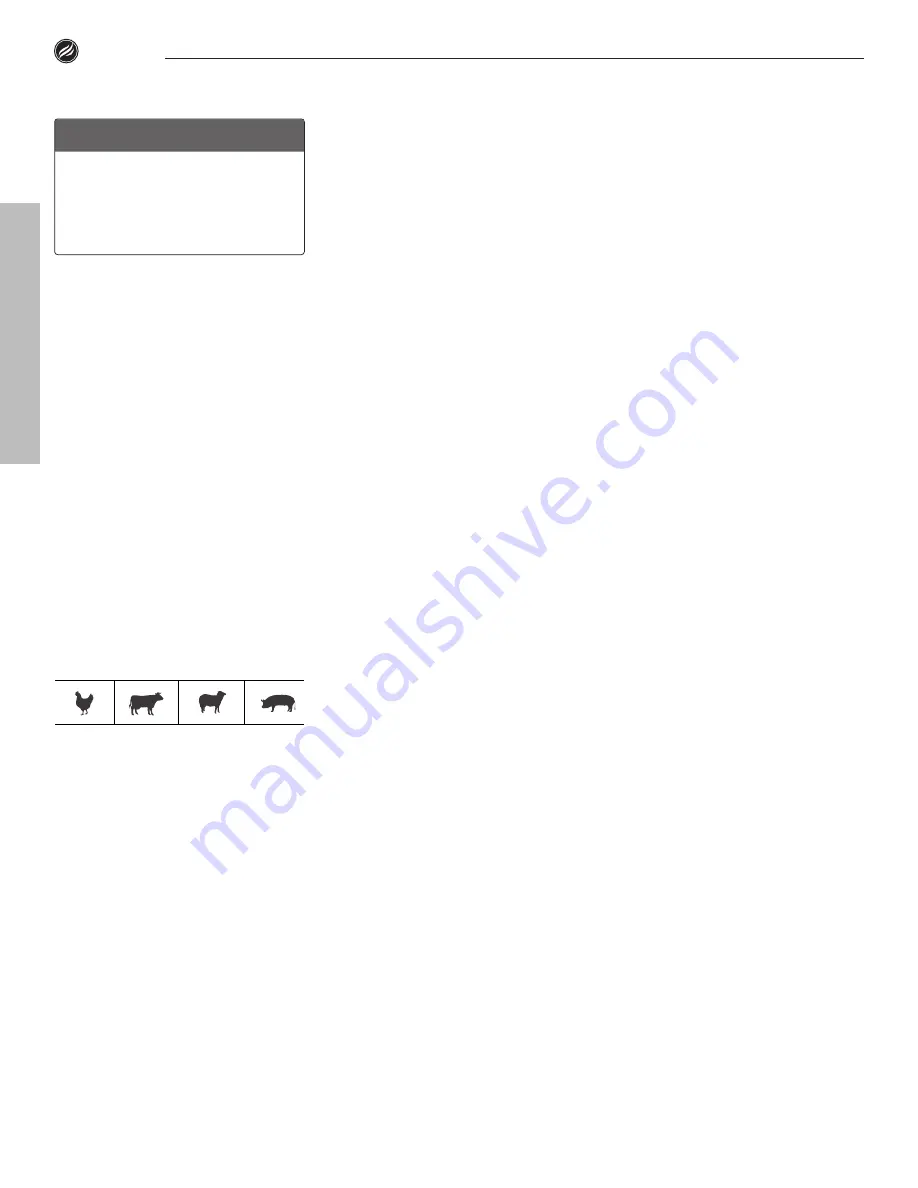
ENG
LIS
H
ENG
LIS
H
FOR YOUR SAFETY
Before proceeding, make certain that you understand the FOR YOUR
SAFETY section of this manual. Hazardous fire or explosion may result if
instructions are ignored.
Section 01
FOOD SAFETY
Food safety is an important part
of enjoying the outdoor cooking
experience. To keep food safe from
harmful bacteria, follow these four
basic steps:
CLEAN:
Wash hands, utensils,
and surfaces with hot soapy water
before and after handling raw meat
and poultry.
SEPARATE:
Separate raw meats
and poultry from ready-to eat
foods to avoid cross contamina-
tion. Use clean platter and utensils
when removing cooked foods
from appliance.
COOK:
Cook meat and poultry
thoroughly to kill bacteria. Use ther-
mometer to ensure proper internal
food temperatures.
CHILL:
Refrigerate prepared foods
and leftovers promptly.
For more information visit
foodsafety.gov or Canadian
Partnership for Consumer Food
Safety Education online at
befoodsafe.ca
Poultry
165° F or 74°C
Juices should run clear and flesh
should not be pink.
Beef or Poultry Hamburger
160° F or 71°C
Juices should not be pink and flesh
should be brown in the middle.
Beef, Veal, & Lamb
Steaks/Chops
145° F or 63°C
Beef, Veal, & Lamb Roasts
145° F or 63°C
ALL cuts of Pork
160° F or 71°C
Juices should not be pink.
MEAT COOKING
TEMPERATURES
!
WA R N I N G
NEVER
partially cook meat
or poultry to finish cooking
later. Cook food completely
to destroy harmful bacteria.
HOW TO TELL IF
MEAT IS COOKED
THOROUGHLY
Meat and poultry cooked with this
appliance often browns very fast on
the outside.
Use a meat thermometer to be sure
food has reached a safe internal
temperature and cut into food to
check for visual signs of doneness.
When reheating takeout foods
or fully cooked meats like hot
dogs, cook to 165° F/74°C , or until
steaming hot.
For Your Safety
Model 8000
| Owner’s Manual |
02


